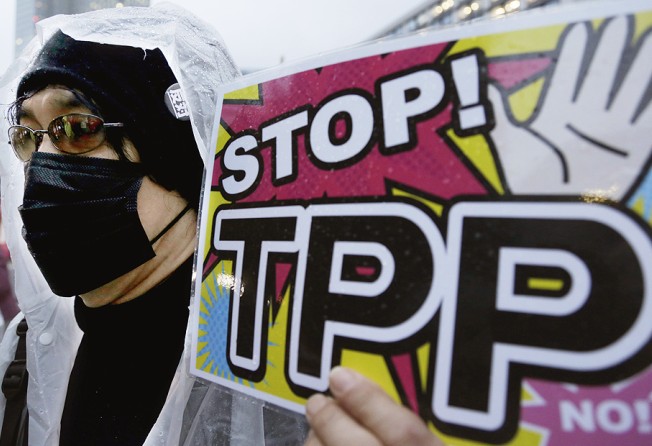Regional trade deals can advance integration of economies
Mega-regional treaties may set the trend for comprehensive partnership among members if they live up to the hype and escape from politics

Politics has a habit of getting in the way of business - and negotiations on a clutch of major regional free-trade deals prove the point.
Three so-called "mega-regionals" are being discussed, and all three appear to have an underlying political imperative behind them.
As I argued in this column back in January, any assessment of the economic costs and benefits of mega-regionals must be tempered by political economy considerations.
And on the face of it, the exclusionary character and trade-cost-raising tendencies of mega-regionals make them obviously inferior to the World Trade Organisation.
Except that all the mega-regionals, to some extent, reflect a trend towards deeper integration and consolidation.
And if this deeper, more progressive and inclusive kind of integration were to take hold, the agreements signed would go beyond anything the WTO could aspire to achieve.
So how likely is that outcome?
The 10 economies comprising the Association of Southeast Asian Nations plus Australia, China, India, Japan, New Zealand and South Korea gathered in Singapore two weeks ago for their fifth round of negotiations on the Regional Comprehensive Economic Partnership trade agreement.
The agreement, together with the Trans-Pacific Partnership and the Transatlantic Trade and Investment Partnership, could transform the policies of some members and bring huge benefits - if they live up to the hype and escape from the politics that has spawned them.
The United States-dominated TPP is widely regarded as part of the country's China-containing "pivot". The US-European Union TTIP has been portrayed as a last-chance effort of powers in relative decline to write the 21st-century rule book for real-sector international economic co-operation. The regional agreement could be seen as a China-led geopolitical response to these power plays.
In a political sense, the mega-regionals are the diplomatic low road trod by governments disavowing potential gains from multilateral co-operation. But if governments with sufficient heft are unwilling to drive the multilateral process, there is little point in merely disparaging preferentialism.
This brings us back to the RCEP and its economic potential. The initiative is billed as "a modern, comprehensive, high-quality and mutually beneficial economic partnership agreement".
The other mega-regionals aside, the RCEP would be the world's largest trading bloc, accounting for a third of global gross domestic product, half the world's population and 40 per cent of trade.
Intra-RCEP trade is also about 40 per cent of total trade in the region, but the figure jumps to 60 per cent if only trade in intermediate goods is taken into account. This suggests the RCEP economies are drawn quite closely together in global value chains. That provides a solid base for building on existing economic links and policy co-operation.
RCEP negotiations comprise the usual range of issues, including trade in goods and services, investment, intellectual property and dispute settlement, but they also contain the seeds of deeper, broader and more inclusive integration.
Much of this is encompassed in the notion of economic and technical, or ecotech, cooperation as being an integral part of integration, which dates back to discussions in the 1990s under the Asia-Pacific Economic Cooperation banner.
No fixed list of activities is covered, but it can include such matters as trade facilitation and investment in physical and human infrastructure.
This conception of co-operation goes well beyond a free-trade agreement, getting much closer to a comprehensive economic partnership. It extends the agenda beyond liberalisation to development and a more profound form of integrating cooperation.
Not all RCEP parties are equally enthused about this orientation, fearing that it will detract from the more traditional, contractual commitments favouring trade, investment and opportunities in the marketplace.
But with regional preferential trade initiatives crimping serious engagement in the World Trade Organisation's Doha Round, a deal like RCEP might just be the thing to galvanise wider action.
Patrick Low is vice-president of research at the Fung Global Institute